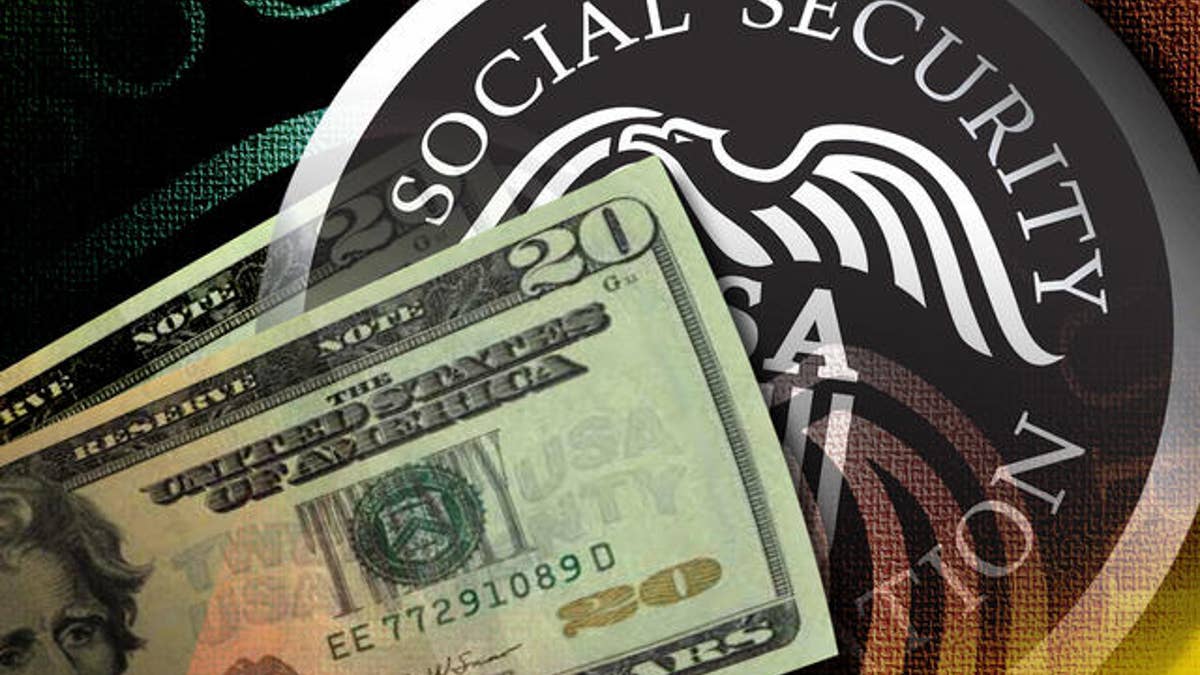
(AP)
President Obama's stark warning that Social Security payments may not go out next month is a choice the administration has to make, but entitlement benefits could be withheld if the cash flow dries up over an impasse in Washington on raising the debt ceiling.
Obama issued the warning on Tuesday when he said Social Security payments and veterans' checks, among other payments, could be at risk if negotiators don't reach a deal to raise the debt limit above $14.3 trillion by Aug. 2. That's when the Treasury Department says the government will stop being able to borrow money.
"I cannot guarantee that those checks go out on August 3rd if we haven't resolved this issue, because there may simply not be the money in the coffers to do it," Obama said in an interview with CBS News.
The warning rippled through Washington, though some continued to question whether the administration was over-hyping the consequences of creeping too close to the cut-off date for borrowing.
Rep. Tim Huelskamp, R-Kansas, said Wednesday that if the administration were to withhold Social Security payments, it would be a "political decision" because there are "sufficient receipts" to cover the checks.
Social Security Administration actuary Stephen Goss told Huelskamp at a hearing that it would be up to the Treasury Department to send out payments.
Meanwhile, seniors are left wondering whether they'll get their promised retirement benefits.
Washington is obligated to pay Social Security benefits, but a Congressional Research Service report last month confirmed that the Treasury Department can delay them if necessary.
"Social Security benefit payments may be delayed or jeopardized if the Treasury does not have enough cash on hand to pay benefits," reads the report, which notes that the Treasury occasionally needs to issue debt to pay benefits, and a failure to raise the ceiling could make that impossible.
A Government Accountability Office report several decades ago also said it is "generally recognized" that, in the event of a national default, the government would be precluded from honoring some obligations -- including Social Security benefits, employee wages and other payments.
So far, the government is not at that point, and leaders in both parties are not showing the stomach for testing the fallout from failing to raise the debt ceiling. But the sides are conflicted about how much to increase the borrowing limit -- with Republicans insisting the government stop spending an equal amount as it borrows, and Democrats calling for tax hikes to pay for the additional loans.
On Tuesday, Senate Republican Leader Mitch McConnell offered a Plan B, which could allow for an increase by Aug. 2 even if there's no deal to cut spending.
Some lawmakers claim the administration could limp along at least for a short period by prioritizing payments, and in turn avoid default.
"I don't know what to believe," Boehner told Fox News in an interview after the latest White House meeting with congressional leaders Tuesday.
"The Treasury secretary is going to have options in terms of who should be paid and who shouldn't," he said. "Yes, there are some debts that have to be rolled over. But there's going to be money available on August 3, and I think it's way too early to be making some types of veiled threats like that."
Washington has found ways to protect Social Security payments in the past. The Treasury Department in 1996 announced it did not have enough money to pay Social Security benefits for the month of March because it could not issue new debt. However, Congress passed a law allowing the department to temporarily issue securities in an amount equal to those payments, in such a way that would not count against the debt ceiling in the short-term.
The benefits were paid and Congress subsequently raised the debt ceiling from $4.9 trillion to $5.5 trillion. At the same time, Congress also locked off Social Security and Medicare funds from the purposes of "debt management," according to the CRS report -- though the move still doesn't protect the payments if Treasury does not have the money to pay them.
Republican presidential candidate Newt Gingrich told Fox News that Republicans "should call President Obama's bluff."
"House Republicans ought to go in tomorrow or the next day, pass a $100 billion cut in spending and a $100 dollar increase in the debt ceiling so it is exactly balanced. That takes us all the way through to September. They should call that 'the Social Security payment guarantee bill.'
"Then they should say to the president. Here we've taken care of August. All you have to do is get Harry Reid and the Senate Democrats to pass it. You sign it. We can guarantee every senior citizen their Social Security check," Gingrich said.
• POLITICS BLOG: Americans Split on Debt Ceiling Fix
• TAXPAYER CALCULATOR: How Much Raised Debt Ceiling Costs You?




